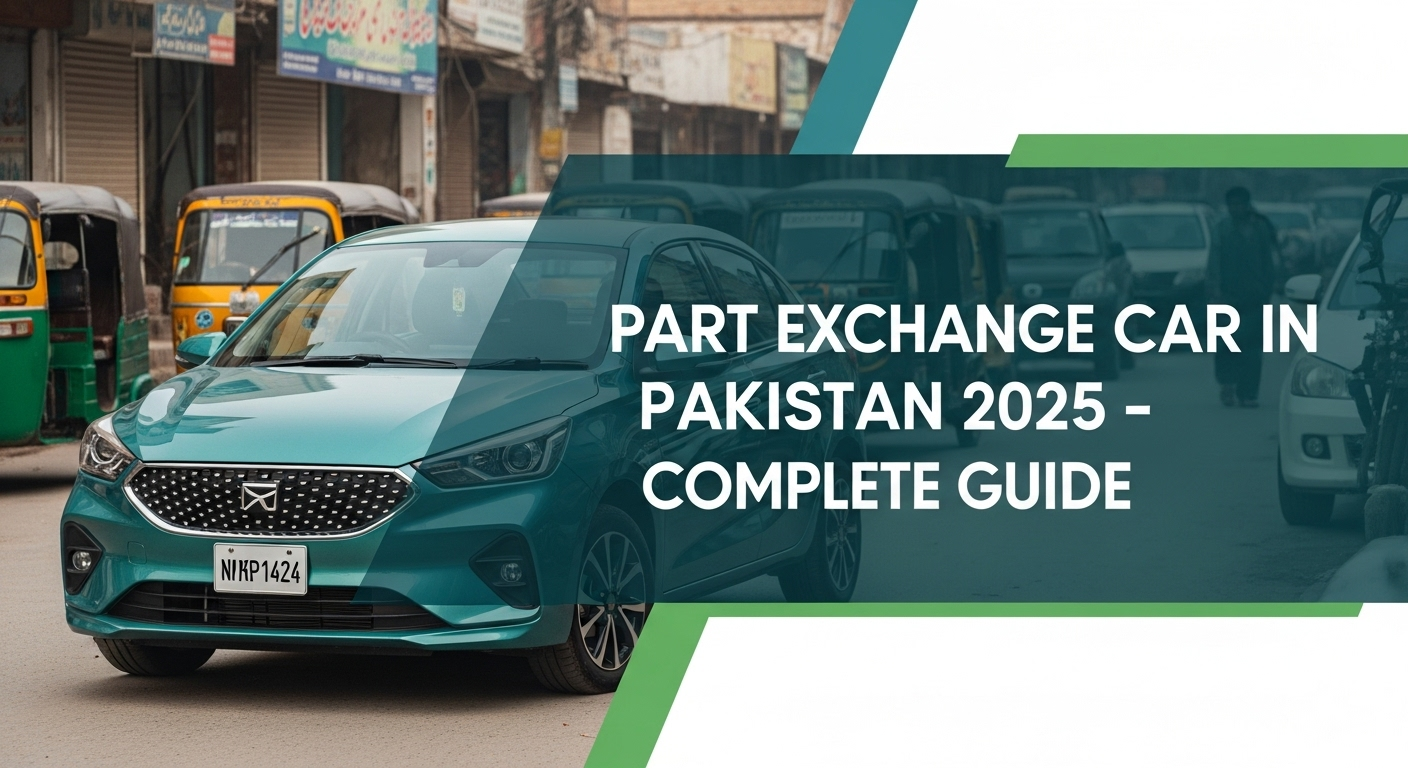Part exchange, also called trade-in, is becoming a convenient option for car buyers in Pakistan who want to replace their old vehicle with a new one. Instead of going through the hassle of selling your car privately, you can trade it in at an authorised dealership and use its value toward a new or certified used car.
What is Part Exchange?
Part exchange allows you to give your current car to a dealer in exchange for a discount on another vehicle. The dealer evaluates your car’s condition, mileage, and market demand, then deducts that amount from the price of your next car. The process reduces paperwork, ensures safety, and saves time compared to a private sale.
Who Offers Part Exchange in Pakistan?
In Pakistan, many authorised dealerships and brand-certified used programs offer car exchange services. Pak Suzuki and other manufacturers run official trade-in programs, while multi-brand showrooms and used-car dealers also provide exchange options. Manufacturer-backed programs are usually more reliable because they include professional inspections and proper documentation.
Benefits of Part Exchange in Pakistan
- Quick and hassle-free: Dealers manage valuation, inspection, and ownership transfer.
- Safe transaction: Reduced risk compared to dealing with unknown private buyers.
- Dealer promotions: Some manufacturers offer loyalty bonuses or priority delivery.
- One-step process: You only negotiate the final amount after trade-in deductions.
READ MORE
How Dealers Value Your Car
Dealers assess several factors before making an offer:
- Vehicle condition (interior, exterior, accident history, paint).
- Service and maintenance records.
- Mileage and mechanical performance.
- Market demand and resale potential.
- Availability of spare parts for the model.
Step-by-Step Car Exchange Process in Pakistan
- Research market prices: Check platforms like PakWheels and OLX to know your car’s value.
- Book an inspection: Schedule a car evaluation at an authorised dealer.
- Get a valuation report: The dealer provides an exchange offer based on inspection.
- Negotiate the deal: Finalise the new car price minus your car’s value.
- Complete paperwork: Sign the exchange agreement and transfer documents.
- Ownership transfer: Dealer or buyer processes transfer through Excise & Taxation office.
- Clear bank loan (if any): Provide a No Objection Certificate (NOC) if the car is financed.
Required Documents for Car Exchange
- Original registration book or smart card.
- CNIC copies of buyer and seller.
- Sale deed or transfer letter.
- Bank NOC for financed cars.
- Token tax clearance certificate.
Costs and Taxes Involved
- Transfer fees: Payable to the provincial Excise & Taxation department.
- Token tax: Must be cleared before transfer.
- Loan settlement charges: If applicable for financed vehicles.
Tips to Get the Best Exchange Value
- Maintain a complete service history.
- Fix small issues before inspection.
- Present a clean, well-maintained car.
- Compare offers from multiple dealers.
- Use market rates as negotiation leverage.
Common Mistakes to Avoid
- Accepting unclear valuation reports with hidden charges.
- Handing over the car before transfer is completed.
- Ignoring outstanding bank loans without NOC.
- Choosing unreliable dealers without proper reputation.
Car Loan Documentation in Pakistan 2025 – Complete Guide to Requirements & Process
READ MORE
FAQs on Car Part Exchange in Pakistan
Q: Can any car be exchanged?
A: Most popular models in good condition are accepted, but very old or damaged cars may not qualify.
Q: Is part exchange better than selling privately?
A: It is faster and safer, but private sales usually offer a higher price.
Q: Who handles ownership transfer?
A: Usually the dealer, but you should confirm before finalising.
Conclusion
Part exchange car deals in Pakistan are becoming more popular in 2025 because they are simple, fast, and secure. By choosing an authorised dealer or certified-used program, you can avoid scams, reduce paperwork, and get a fair value for your old vehicle. Always compare offers, clear outstanding loans, and complete ownership transfer through the Excise & Taxation office to ensure a smooth experience.









